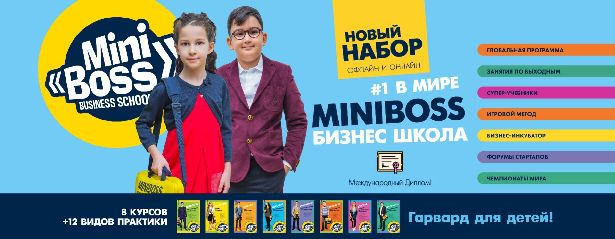
Takeaway insight for entrepreneurs #1:
What more is wisdom than, well, hearing a cobra is poisonous without having to lose your life for proof? Bezos, then, makes a concerted effort to surround himself with wiser, more mature minds. Sure, hanging with people you’re smarter than boosts your ego, but hanging with people smarter than you boosts your intellect.
In short, to think like Bezos — in this respect — merely calls for, as he puts it: "Surrounding yourself with people who challenge you, teach you, and push you to be your best."
Takeaway insight for entrepreneurs #2:
Though "all the world’s a stage," the earthly platform appears overpopulated with lead singers playing the drums and drummers who sing. Why? To put food on the table! Too many entrepreneurs set their sights on reduplicating the success of the Big Four instead of merely "following their own passions."
Find out which business you’re good at and you’ll then know which business you’re good for, which can only lead to good business decisions! In short, if you chase money, you’ll never catch it; but if you chase passion, the money will chase you.
Takeaway insight for entrepreneurs #3:
Because success leaves clues, one need not be Sherlock Holmes to detect the following theme. Of the famed Big Four: Jobs dropped out of college (initially considered a failure), Zuckerberg dropped out of college (initially considered a failure), Page dropped out of college (initially considered a failure), and Bezos quit his lucrative job (initially considered a failure).
"Life can only be understood backwards," said Kierkegaard, "but it must be lived forwards." For this reason, when viewed thru the perfected lens of hindsight, each "setback" shows itself to have moved us to a road that initially appeared worse, yet ultimately led to an even better destination. In short, it’s apparent Bezos fully embraces being misunderstood, so far as the end justifies the means.
Armed with the Socratic method, the following insight becomes apparent: the word entrepreneur means "anyone operating a business that willingly embraces extraordinary financial risks in hopes of gaining extraordinary rewards."
The greater the risk, the greater the reward, goes the saying. For this reason, Bezos embodies the spirit of a true entrepreneur. Here lies the key insight into knowing how Jeff Bezos thinks, not what he thinks. And the DNA of how he thinks boils down to this: if you’re not willing to risk it all on your own entrepreneurial dream, then who else will?
In the interview — enter + view — conducted by the Academy of Achievement, Bezos discusses his "regret minimization framework." As for how Bezos thinks about this go-to framework, as he notes:
"I wanted to project myself forward to age 80 and say, ‘OK, I’m looking back on my life. I want to minimize the number of regrets I have.
And I knew that when I was 80, I was not going to regret having tried this. I was not going to regret trying to participate in this thing called the Internet that I thought was going to be a really big deal. I knew that if I failed, I wouldn’t regret that.
But I knew the one thing I might regret is not ever having tried. I knew that that would haunt me every day."
A Source
Takeaway insight for entrepreneurs #3:
Because success leaves clues, one need not be Sherlock Holmes to detect the following theme. Of the famed Big Four: Jobs dropped out of college (initially considered a failure), Zuckerberg dropped out of college (initially considered a failure), Page dropped out of college (initially considered a failure), and Bezos quit his lucrative job (initially considered a failure).
"Life can only be understood backwards," said Kierkegaard, "but it must be lived forwards." For this reason, when viewed thru the perfected lens of hindsight, each "setback" shows itself to have moved us to a road that initially appeared worse, yet ultimately led to an even better destination. In short, it’s apparent Bezos fully embraces being misunderstood, so far as the end justifies the means.
Armed with the Socratic method, the following insight becomes apparent: the word entrepreneur means "anyone operating a business that willingly embraces extraordinary financial risks in hopes of gaining extraordinary rewards."
The greater the risk, the greater the reward, goes the saying. For this reason, Bezos embodies the spirit of a true entrepreneur. Here lies the key insight into knowing how Jeff Bezos thinks, not what he thinks. And the DNA of how he thinks boils down to this: if you’re not willing to risk it all on your own entrepreneurial dream, then who else will?
In the interview — enter + view — conducted by the Academy of Achievement, Bezos discusses his "regret minimization framework." As for how Bezos thinks about this go-to framework, as he notes:
"I wanted to project myself forward to age 80 and say, ‘OK, I’m looking back on my life. I want to minimize the number of regrets I have.
And I knew that when I was 80, I was not going to regret having tried this. I was not going to regret trying to participate in this thing called the Internet that I thought was going to be a really big deal. I knew that if I failed, I wouldn’t regret that.
But I knew the one thing I might regret is not ever having tried. I knew that that would haunt me every day."
A Source



